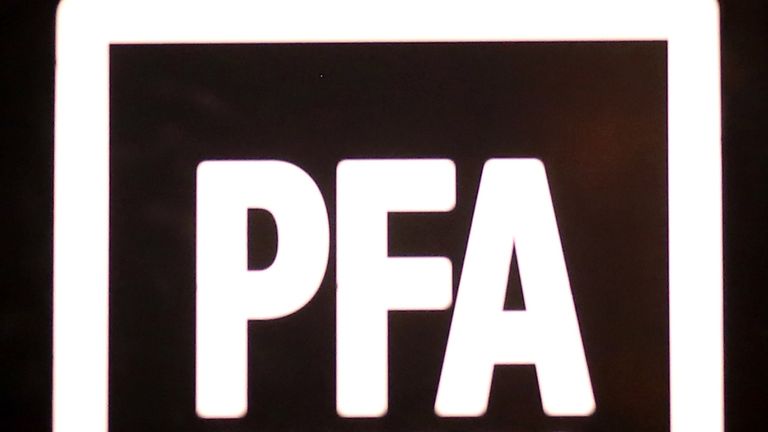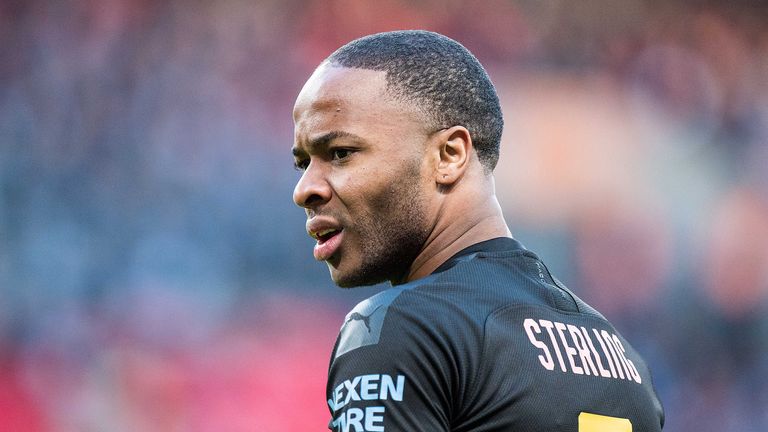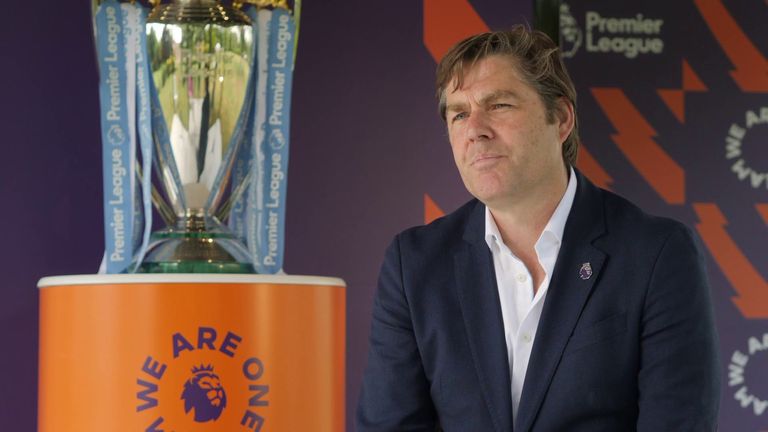Professional Footballers' Association calls for greater transparency around diversity across football
Wednesday 17 June 2020 10:41, UK
The Professional Footballers’ Association (PFA) has called for greater transparency around diversity across football and described this as a "potentially transformative time" in the sport and society.
The issue of racism has been on the worldwide agenda in recent weeks, with a growth in support - including from leading footballers - for the Black Lives Matter movement after the death of George Floyd in America last month.
- PL chief Masters supports PL stars speaking out
- Rashford 'proud' after PM U-turn on free school meals
The PFA highlighted the issue of a lack of BAME representation in areas of the game beyond the pitch in a statement on Tuesday night, as Raheem Sterling called for the government to address the under-representation of black people in Parliament and on the boards of sporting organisations.
In a statement, the PFA, which has joined the social media initiative #pullupforchange, released its own diversity statistics in relation to black representation within the union.
Their figures show that 43% per cent of the Charity Trustees are from the black population but only seven per cent of the PFA Management Committee is represented by black people.
"We want all football organisations to demonstrate a clear commitment to ensuring the representation of black players extends beyond the pitch, into coaching, management and at board level," said PFA head of equalities, Simone Pound.
"The football industry can only move forward collectively when we have shared data about how things currently stand. Being transparent allows the industry to be held accountable and is a starting place for meaningful change."
The PFA also urged on the game's stakeholders to commit to recording the ethnicity of all players and coaches "so the game can be held accountable".
Last week, The Daily Telegraph published an analysis of leading governing bodies and sporting institutions that showed an alarming trend of under-representation of black people.
There are no owners, chief executives, or chairs who are black at any of the 92 Premier League and Football League clubs. Of those national sport governing bodies that receive public money, just three per cent of board members are black, and 64 per cent have no board members who are black at all.





